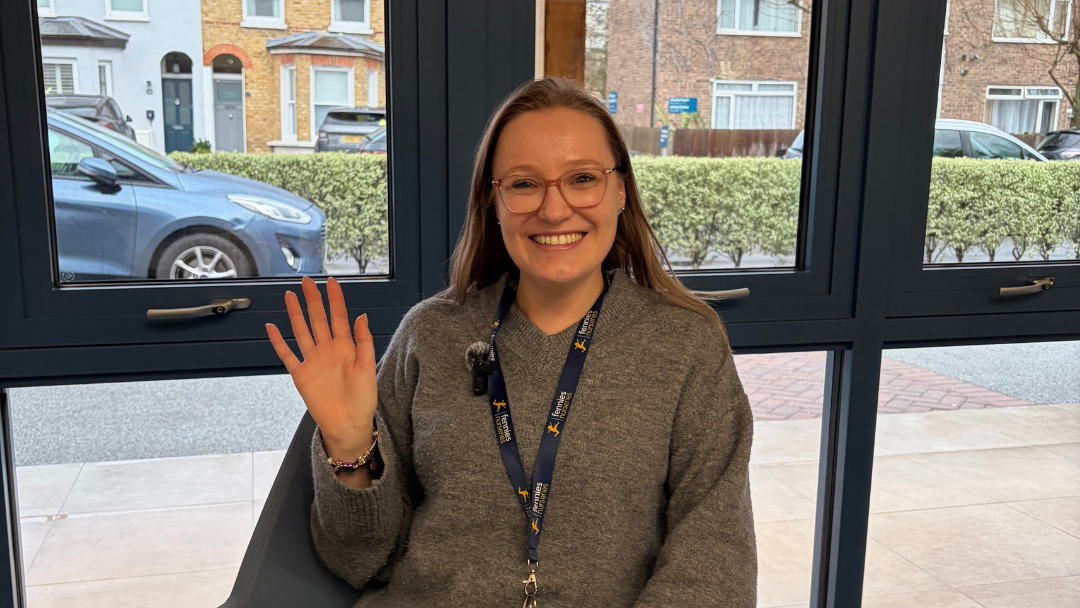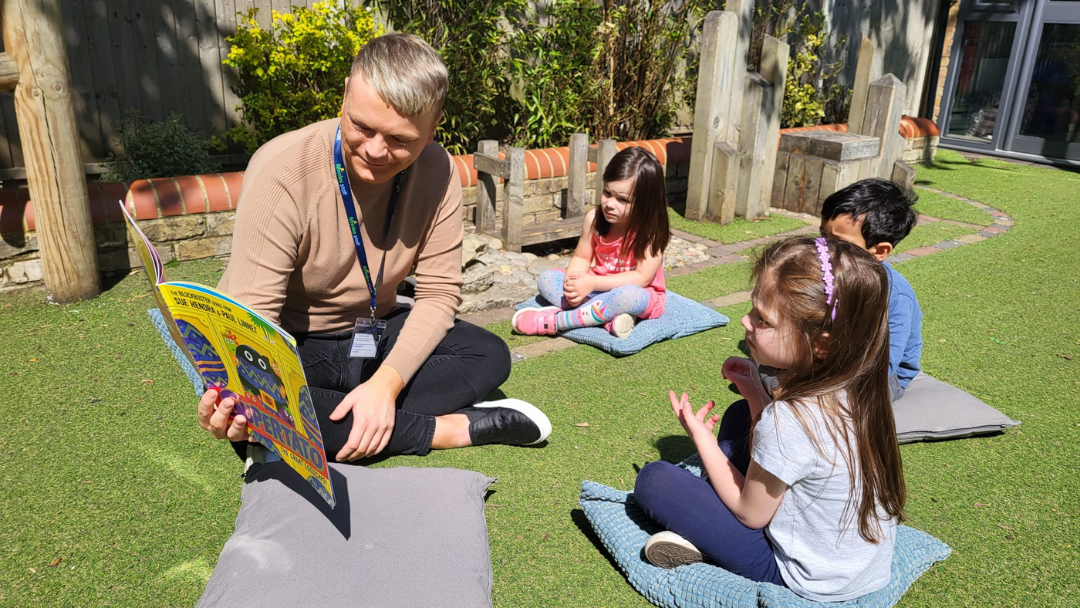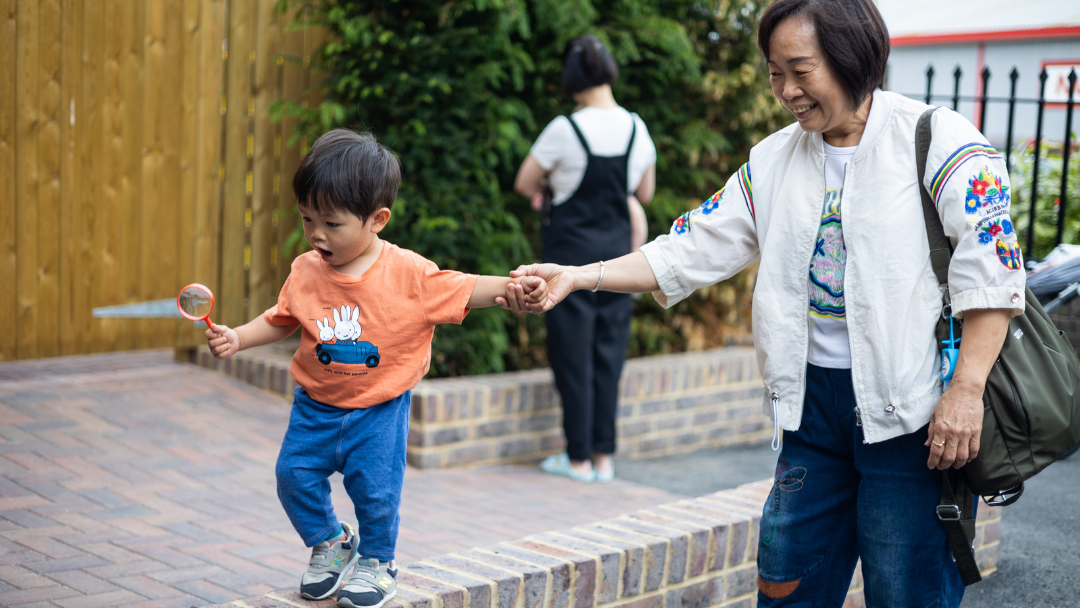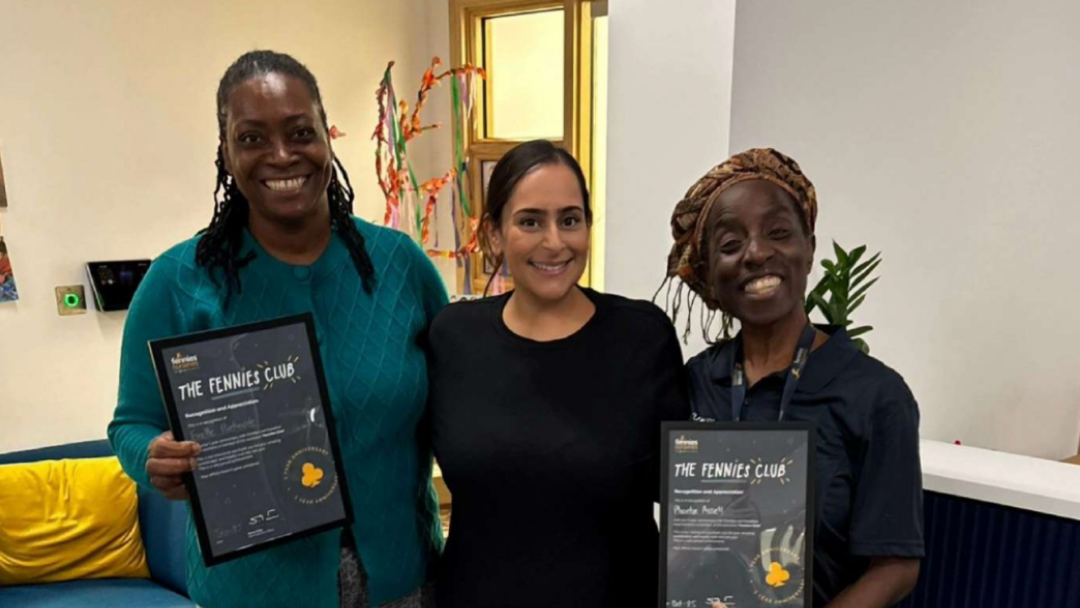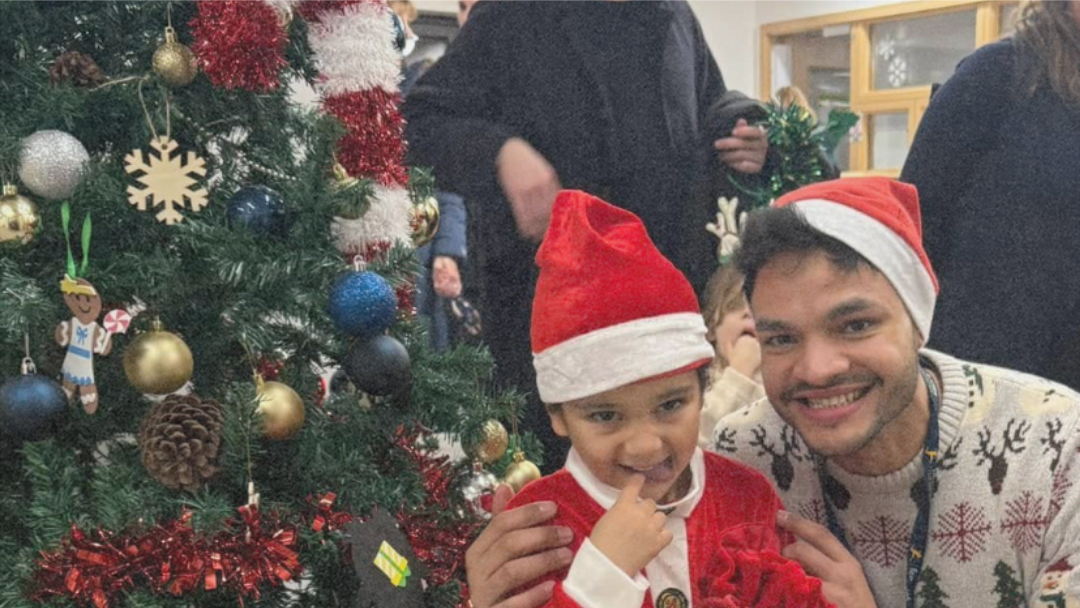Meditation is a practice that we usually associate with adults, but it can have great benefits for young children too.
Emotional literacy and self-regulation are a focus in the early years; helping children understand emotions, how they feel and what they can do to manage intense emotions.
Meditation is a tool that can help children to develop an understanding of their thoughts and feelings, a skill that if developed at an early age, will benefit them for the rest of their life. This is a skill that they cannot learn by themselves. It is a process that must be guided by adults.
Early Habits
Many parents will be able to relate to the following scenario. You are late for an important meeting at work. Your4-year-oldis determined to put their own shoes on – a task that you know takes a bit longer than youmustspare that morning. She is unable to thread the Velcro through the little hole. You know what is coming next. She growls a bit, she tuts – the frustration is growing. You offer to do it for her and are met with a resounding“NO.”She becomes increasingly frustrated, begins to cry, kicks her shoes off, and refuses to put them or any other shoes on at all. You are nowextremely late–you aretelling her she needs to put shoes on to leave. Cue full-blown tantrum. She throws herself on the floor and kicks and wriggles not allowing you to put her shoes on for her.This is an example of how aseemingly smalldetail canimpacta child so massively. As she was unable to thread the Velcro, her stress levels were beginning to grow. The parent is adding to her stress levels by rushing her. She does not know how to deal with the stress she is feeling, she is unaware of what has triggered it, she just knows she is feeling it and now needs to expel that energy and frustration through a tantrum.Such situations present the ideal opportunity toteachchildren about other ways to meet a goal. Stop and think about how you are feeling, how about we try this instead. Over time, with consistency, children will learn torealisethey are feeling stressed, learn to stop,thinkand produce a different solution.

Why is Mindfulness important for children?
One of the reasons mindfulness is so effective for children is because of the way their brain develops. Our brains develop throughout our lives but during childhood, the prefrontal circuits are created at their fastest rate.Mindfulness incorporates skills that are controlled in the prefrontal cortex, such as focus and cognitive control which can therefore have a significant impact on the development of self-regulation,calmnessand patience during the early years.It’simportant to note that children will not learn from one incident, it will take the consistent repeated practice of this to train the brain to build thecapacitytoself-regulate. Even then, there will be fluctuations in their ability toself-regulate, as different situations they are faced with will instigatevarious levelsof stress and emotion. It is also important to be realistic – even if children develop these skills, it is not reasonable to expect that they employ them in every situation.We are not trying to stifle emotions. We are trying to get them to understand that emotions are normal anda very importantpart of who we are and how we relate to others. Emotions help us understand what we like and what we do not like.The message that we want to give is that it is okay to feel what you are feeling, and it is okay to express them. It is important to be heard and to let others know how something is making us feel.We just need to express them and react to them in a more productive way.

Introducing Mindfulness at home
Meditation can help children sleep better, reduceanxietyand improve focus. Making it part of a weekly or even daily routine can be hugely beneficial. But how do you go about meditating with children under 5? After all, they can barely sit still for a minute, never mind adopting a crossed-legged pose and sitting quietly for 5!For the youngest ones, you might simply start with a conversation of a minute or two. What makes you happy? How does it make you feel when you are happy? What makes you unhappy? How does it make you feel when you are unhappy? Explain that when they are feeling those uncomfortable unhappy feelings, to take a deep breath in and think of something happy. Practice this with them. When in situations where they might be feeling unhappy, remind them of your conversations and the breathing exercise.

Mindful activities to try at home
The practice of meditation allows children torecognisedifferent feelings. They will develop a conscious understanding of the physical sensations of feeling happy and sad. Once they develop this understanding, they are more likely to want to feel happy and employ the methods learned to take them back to feeling happy again.Whenchildren reach the age of 4, their attention spans will be (slightly!) better. Activities where they are lying on the floor work well at this age.
This can be a simple breathing activity:
- Lie on your back and close your eyes
- Breathe in deeply and feel your tummy rise
- Breathe out and feel your tummy drop
- Place your hands on your tummy and breathe in and out slowly and feel the rise and fall of your hands.
You could also take your child on a calming story journey with this activity:
- Lie down with your child and encourage them to imagine you are walking on the beach with the wind blowing gently on your face and the sound of the water next to you and the feeling of the sand in between your toes
- The story can be anything that provides an opportunity for children to just be still and feel
If your child responds well to music, give this a go:
- Lie down with your child and play some calming music and ask them to listen
- Encourage them to think about how the music makes them feel, the more detail the better
Fennies Health
Discover how we support your child's well-being at FenniesClick Here
Well-being at Fennies
Fennies staff are trained to understand the strategies of developing emotional literacy andself-regulation. Key personsprovidea warm and responsive attachment where children feel secure and are comforted in times of stress.Our environments incorporatecosyspaces that give children theoptionto take themselves away for some quiet time.The education teamhas also developed a well-beingprogrammeof activities that incorporate daily meditation sessions for preschool children. These are shared with parents so they can replicate the activities at home as a family.

Fennies Recommends

Headspace for Kids
Headspace created a whole section on their renowned meditation app, especially for children. You can select a meditation video created just for kids that are designed to enhance calm, focus, kindness, sleep, and wake up.Find out more here.

Dreamy Kid
Dreamy Kid recognise that meditation is a great life tool for children to help promote inner harmony and balance in their busy lives. Their meditation clips are only 10 minutes long and can be played as children are falling asleep or whilst awake to help equip them with crucial skills like focus, self-regulation, and concentration.Download the app.

My Life
Stop, Breath & Think are on a mission to help kids and adults build the emotional strength and confidence to handle whatever comes their way. You Stop-breathe-and-think-appcan download the app for when you’re on the move or ask Alexa for a guided meditation clip when you’re at home!
FAQ
Subscribe to our newsletter
Stay up to date with Fennies news




